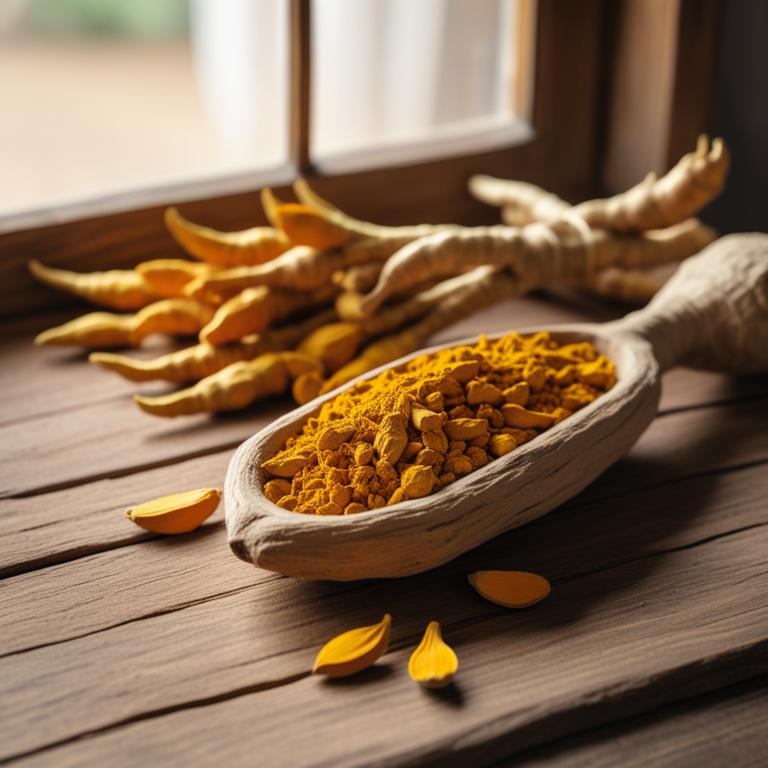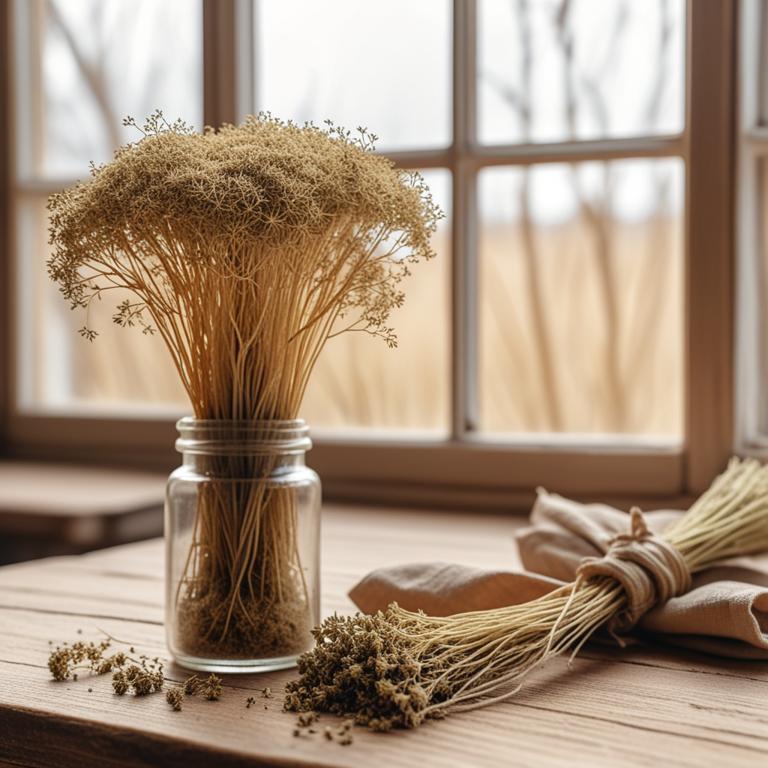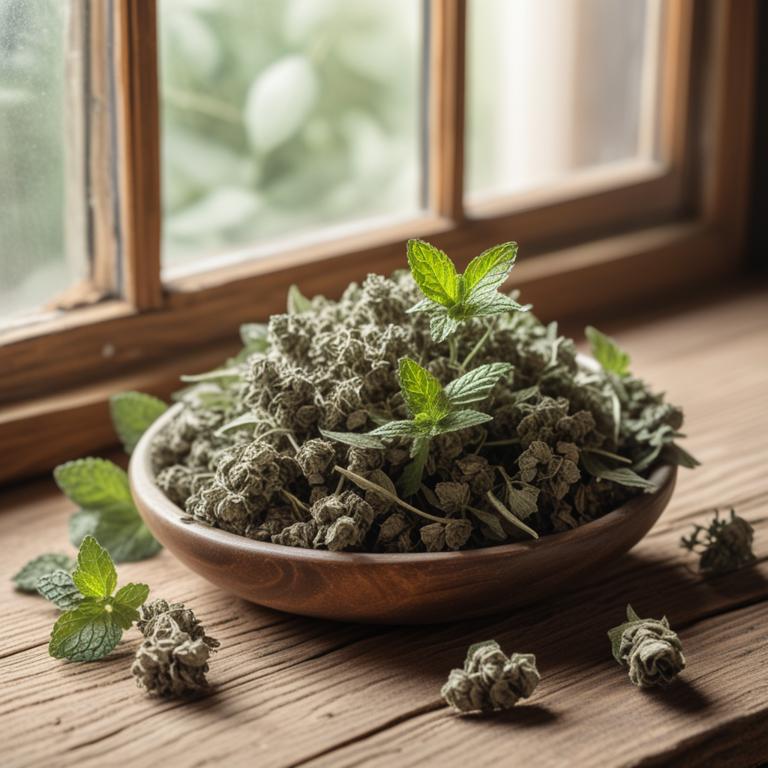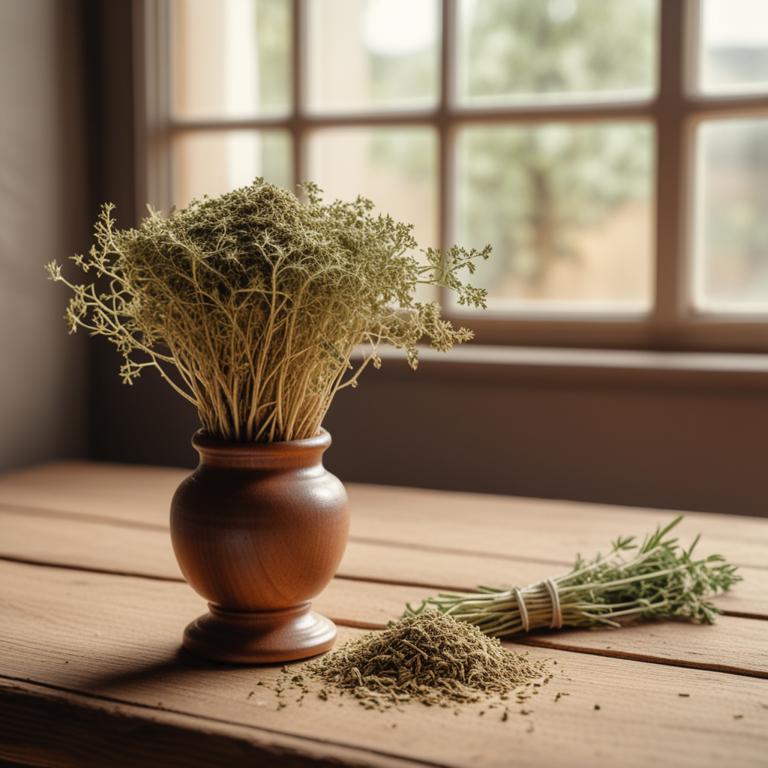Updated: Dec 1, 2024
Understanding Gastritis: Causes and Natural Relief with Medicinal Herbs
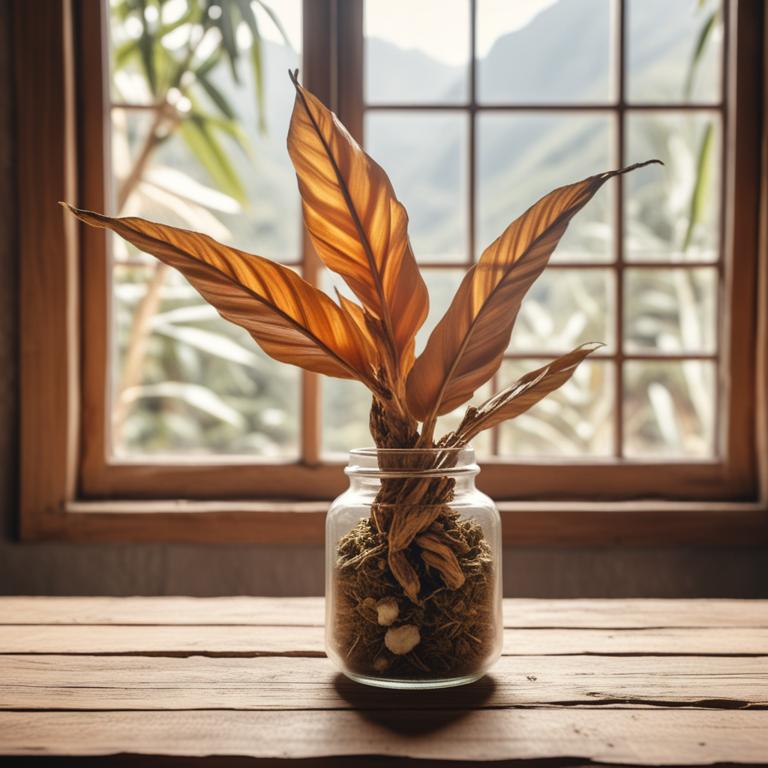
Gastritis is a condition where the stomach lining gets inflamed, causing stomach pain, nausea, and sometimes vomiting.
It can be a real nuisance, making everyday activities like eating and sleeping a chore. Gastritis often occurs when the stomach lining is irritated by stomach acid, which can be triggered by eating spicy or fatty foods, stress, or certain medications. When the stomach lining is inflamed, it can't do its job properly, leading to digestive issues and discomfort. To soothe the stomach and promote healing, some people turn to herbal remedies.
Herbs like aloe vera and marshmallow root have anti-inflammatory properties that can help calm the stomach lining and reduce inflammation. Ginger is another popular herb for gastritis, as it has natural digestive enzymes that can help break down food and ease digestion. When consumed as a tea, ginger can be very soothing to the stomach. Some herbal teas, like peppermint and chamomile, can also help calm the digestive system and promote relaxation, which is essential for healing gastritis. Herbal remedies can be a great addition to a treatment plan for gastritis, but it's essential to talk to a doctor or a healthcare professional before trying any new treatments.
They can help you determine the best course of action for your specific case of gastritis.
Table of Contents
What are the factors that cause gastritis?
The main causes of gastritis are often related to how we live our daily lives.
One major cause is Helicobacter, a type of bacteria that lives in our stomach. It can cause inflammation and irritation, leading to gastritis. Another common cause is the use of Nonsteroidal Anti-Inflammatory Drugs, or NSAIDs, which are painkillers that some people take for headaches or arthritis. However, these medicines can damage the lining of the stomach, making it more susceptible to gastritis.
Stress is also a major contributor to gastritis. When we're under stress, our body releases more acid in the stomach, which can irritate the lining and cause inflammation. Drinking too much alcohol is another common cause of gastritis. Alcohol can irritate the stomach lining and increase the production of stomach acid, leading to inflammation. Lastly, eating too much spicy food can cause gastritis.
Spicy food can irritate the stomach lining and cause inflammation, especially if you have a sensitive stomach.
What are the advantages of utilizing herbs for gastritis?
Using certain plants for gastritis can be really helpful.
These plants have anti-inflammatory properties that can reduce swelling and pain in the stomach. They can also help to heal the stomach lining, which can become damaged due to gastritis. Some of these plants have natural antacids that can neutralize stomach acid and reduce heartburn.
Others have soothing effects that can calm digestive issues and reduce nausea. These plants can also help to boost the digestive system's natural defenses, making it easier to fight off infections and other health issues. By using these plants, people with gastritis may be able to manage their symptoms more effectively and reduce their need for medication.
They can also help to promote a healthy gut microbiome, which is essential for good digestion and overall health.
What are the major medicinal herbs for gastritis treatment?
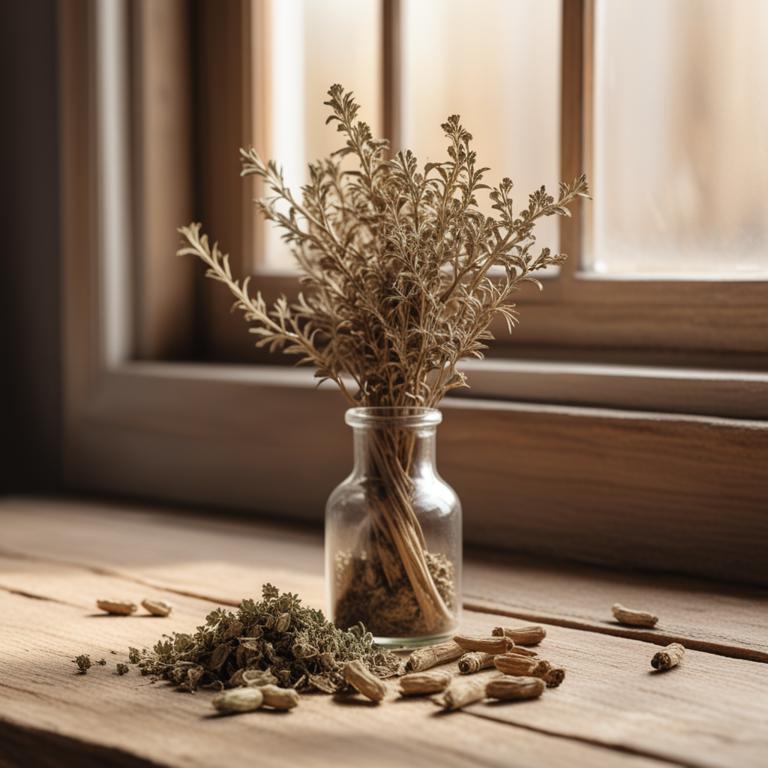
Gastritis is a condition where the stomach lining gets inflamed, causing pain and discomfort.
Herbs can be a great help in managing gastritis symptoms. One herb that's commonly used is Glycyrrhiza glabra, also known as licorice root. It has anti-inflammatory properties that can soothe the stomach lining and reduce inflammation. It also has a protective effect on the stomach, preventing acid from damaging the lining. Another herb that's effective in managing gastritis is Curcuma longa, or turmeric. Curcuma has a compound called curcumin, which has potent anti-inflammatory and antioxidant properties. These properties can help reduce inflammation and heal the stomach lining, making it a great natural remedy for gastritis. Ginger, Zingiber officinale, is another herb that's commonly used to manage gastritis symptoms.
It has anti-inflammatory properties that can help reduce inflammation in the stomach and ease nausea and vomiting. Ginger also helps to stimulate digestion and relieve stomach cramps. Mentha x piperita, or peppermint, is another herb that's commonly used to manage gastritis symptoms. Peppermint oil has anti-inflammatory properties that can help relax the stomach muscles and reduce inflammation. It also helps to ease nausea and vomiting, making it a great natural remedy for gastritis. Fennel, Foeniculum vulgare, is a herb that's commonly used to manage digestive issues, including gastritis. It has anti-inflammatory properties that can help reduce inflammation in the stomach and ease nausea and vomiting. Fennel also helps to stimulate digestion and relieve stomach cramps.
These herbs can be consumed in various forms, such as tea, capsules, or oil, and can be used in combination with other natural remedies to manage gastritis symptoms.
Which herbal remedies are most commonly prescribed for gastritis?
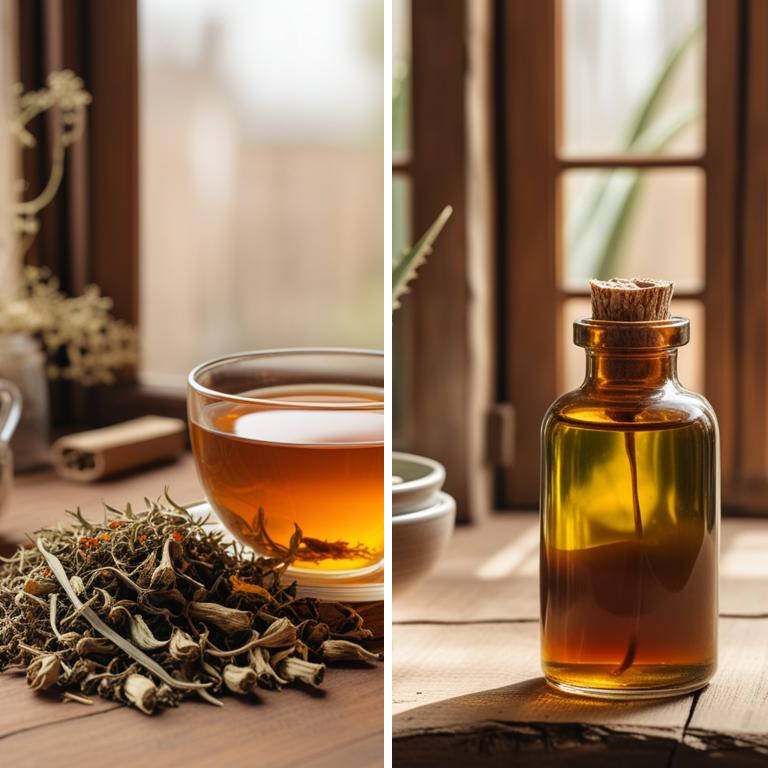
When it comes to treating gastritis, herbal preparations can be a great option.
A decoction is a strong brew made by boiling herbs in water for a longer time. This method is good for herbs that are tough or woody, like ginger and licorice root. The heat helps break down the fibers, making it easier to absorb their medicinal properties. A tea is a weak brew made by steeping herbs in hot water for a shorter time. It's good for herbs like peppermint and chamomile, which have a soothing effect on the stomach. The gentle heat helps release the herbs' active compounds, which can help calm inflammation and reduce discomfort. An infusion is similar to a tea, but it's made with cold water instead of hot. This method is good for delicate herbs like calendula and lemon balm. The cold water helps preserve the herbs' sensitive compounds, which can be damaged by heat.
A capsule is a convenient way to take herbs, especially if you have trouble swallowing or have a sensitive stomach. The herbs are powdered and filled into a gelatin capsule, which can be taken with water. This method is good for herbs like slippery elm and marshmallow root, which have a soothing effect on the stomach lining. A tincture is a concentrated liquid extract of herbs. It's made by soaking the herbs in a solvent, like alcohol or glycerin, and then straining the mixture. This method is good for herbs like aloe vera and meadowsweet, which have a strong medicinal effect. The tincture can be added to water or taken directly, depending on your preference. All of these herbal preparations can be beneficial for gastritis because they allow you to access the medicinal properties of the herbs in a way that's easy to digest and absorb. They can help soothe inflammation, calm discomfort, and promote healing in the stomach lining.
By choosing the right preparation method, you can find a way to take herbs that works for you.
Additional Resources:
What herbs should be avoided in the case of gastritis?
If you have gastritis, it's best to be careful with certain herbs that can irritate your stomach.
Cinnamon, for example, is a warm spice that can further irritate your stomach lining, making your symptoms worse. It's related to a plant called Cinnamomum verum, which is used to make cinnamon powder. The heat from the spice can make your stomach produce more acid, which can be painful if you already have gastritis. Capsicum annuum, or cayenne pepper, is another herb to watch out for. It's spicy and can irritate your stomach lining even more, making your gastritis symptoms worse. This is because the capsaicin in cayenne pepper can cause your stomach to produce more acid, which can be painful and even cause bleeding. Rosemary, or Rosmarinus officinalis, is another herb that can be problematic for people with gastritis. It's a strong herb that can irritate your stomach and make your symptoms worse.
Rosemary has a drying effect on the stomach, which can make it harder for your stomach to heal. Black pepper, or Piper nigrum, is another herb to be careful with. It's a strong spice that can irritate your stomach lining and make your gastritis symptoms worse. Black pepper can also cause your stomach to produce more acid, which can be painful and even cause bleeding. Thyme, or Thymus vulgaris, is another herb that can be problematic for people with gastritis. It's a strong herb that can irritate your stomach and make your symptoms worse. Thyme has a drying effect on the stomach, which can make it harder for your stomach to heal. It's always best to talk to your doctor or a qualified healthcare professional before using any new herbs or spices, especially if you have a condition like gastritis.
They can help you figure out which herbs are safe for you to use and which ones you should avoid.
FAQ
Are there any specific herbs that can prevent gastritis?
Ginger and licorice root have anti-inflammatory properties that may help soothe and protect the stomach lining, potentially reducing gastritis symptoms.
Turmeric contains curcumin, which has antioxidant and anti-inflammatory effects that could help prevent stomach inflammation and pain.
These herbs may offer relief when consumed in moderation.
Is it safe to use herbal remedies for gastritis during pregnancy?
Using herbal remedies for gastritis during pregnancy can be tricky.
Some herbs can stimulate the uterus and cause problems, while others might help soothe the stomach. If you're considering using herbal remedies, make sure to check their safety and potential effects on your baby.
Some herbs are not recommended during pregnancy, so be careful.
Are there any herbs that can reduce the frequency of gastritis?
Ginger is a helpful herb for reducing gastritis symptoms.
It has anti-inflammatory properties that may soothe the stomach lining and reduce inflammation.
Some studies also suggest that peppermint oil can calm the stomach muscles and help relax the digestive system, which can help alleviate gastritis discomfort.
Related Articles
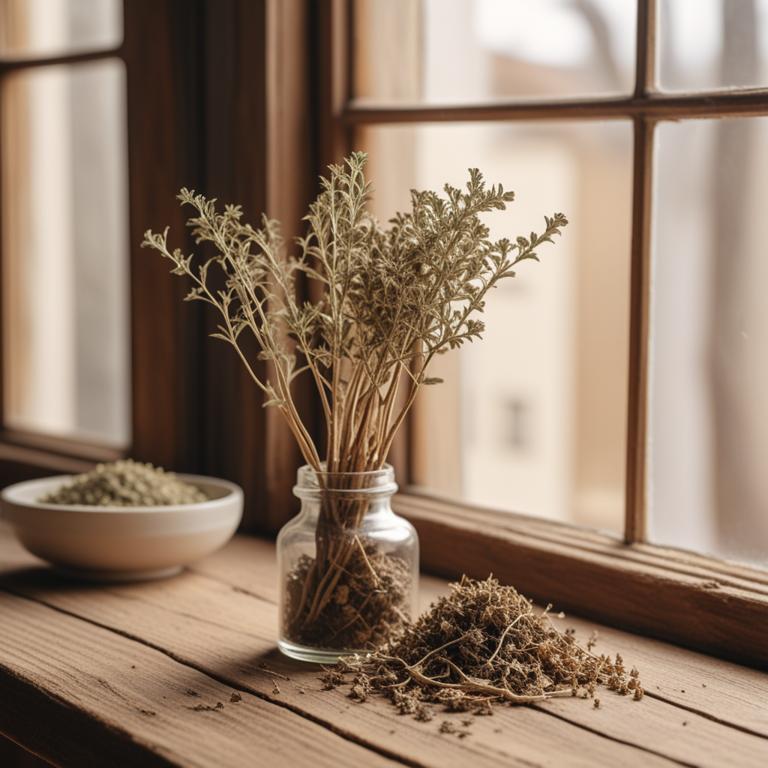
Understanding Abdominal Pain Causes and Herbal Solutions
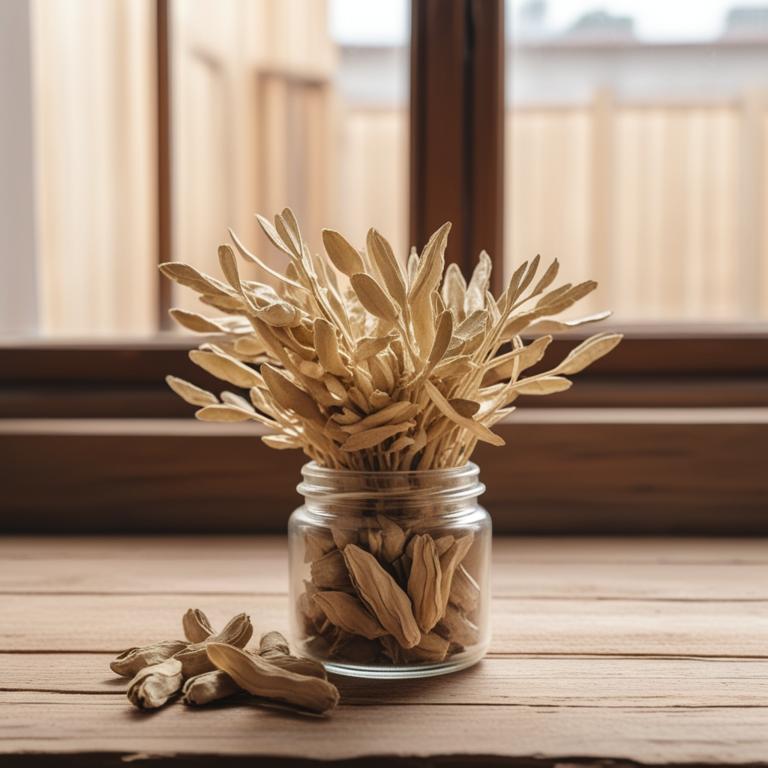
Understanding Chronic Hepatitis: Causes and Effective Herbal Remedies
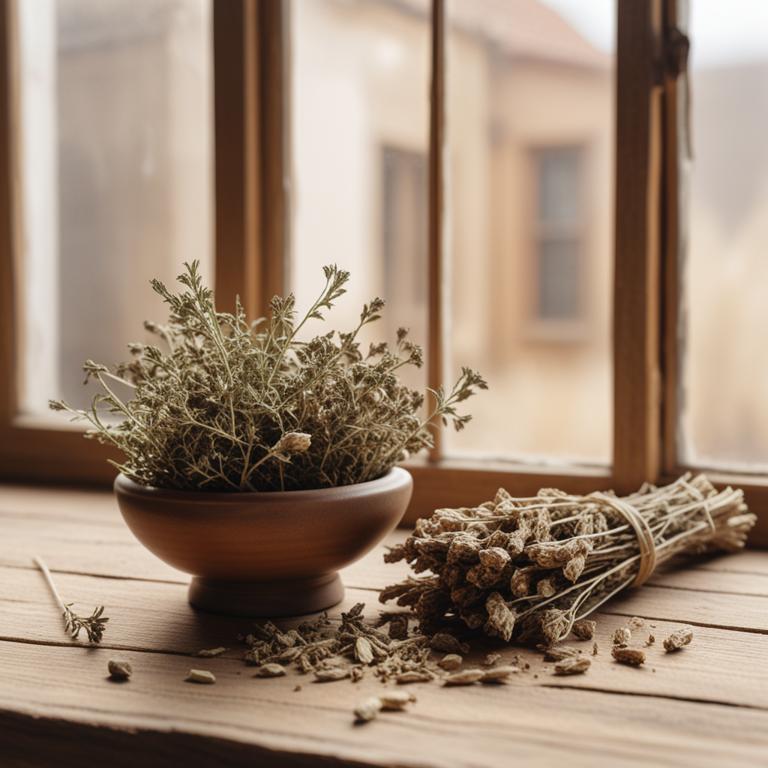
Stomach Cramps: Effective Herbal Preparations and Medicinal Plants
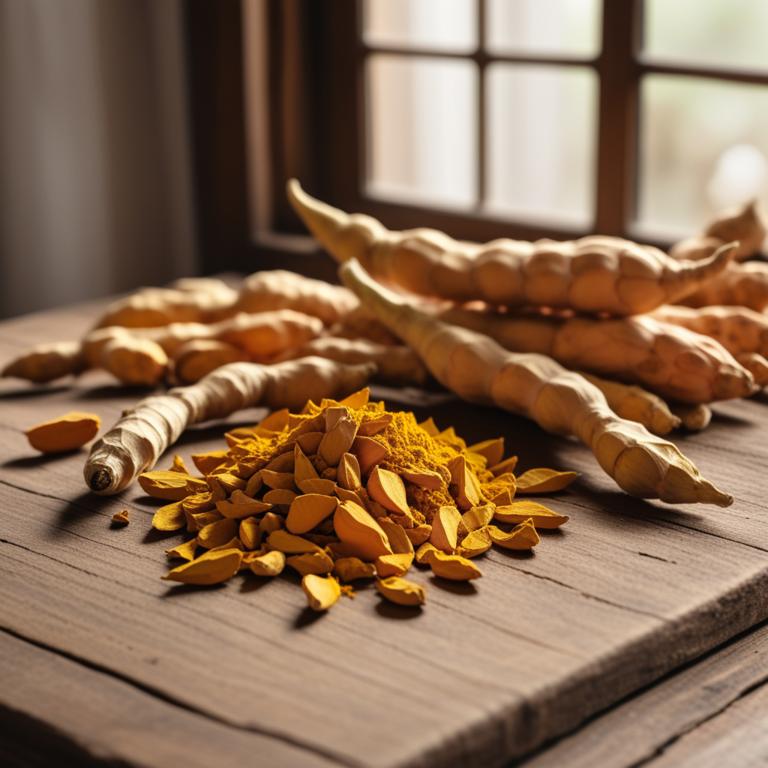
Cholecystitis: Causes, Symptoms, Medicinal Herbs, and Therapeutic Herbal Preparations
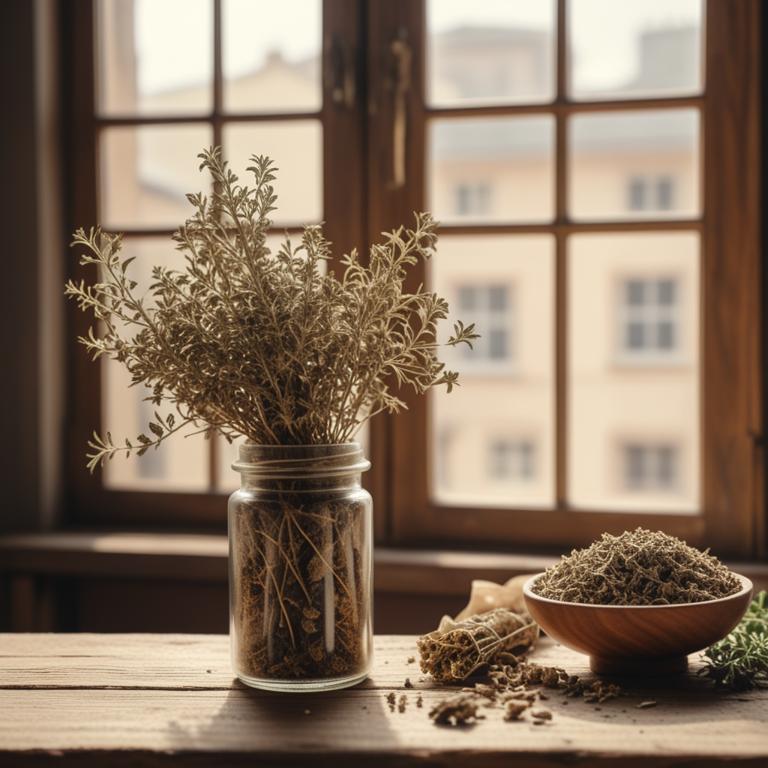
The Causes and Herbal Preparations of Stomach Discomfort
